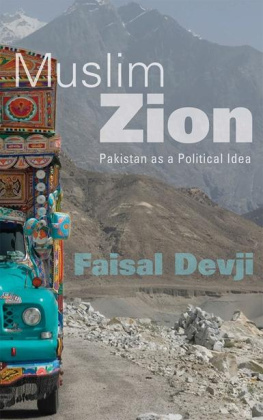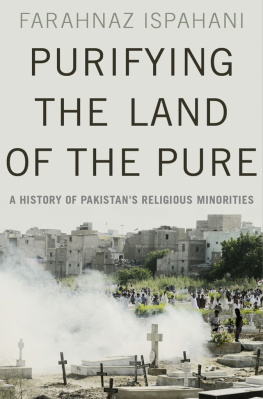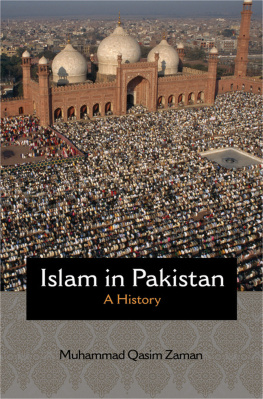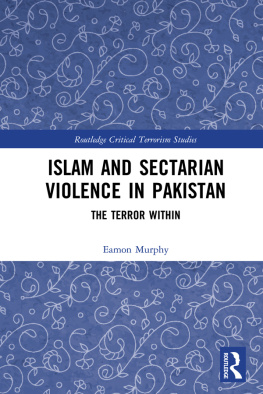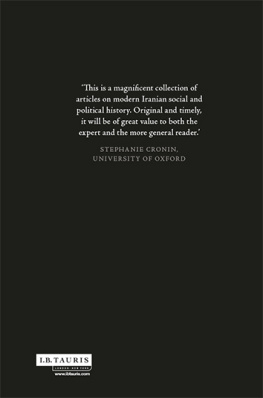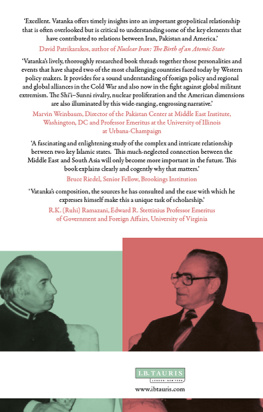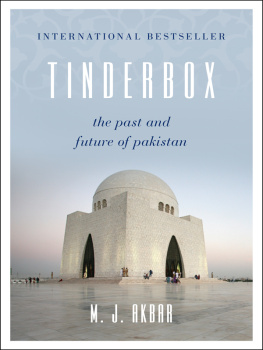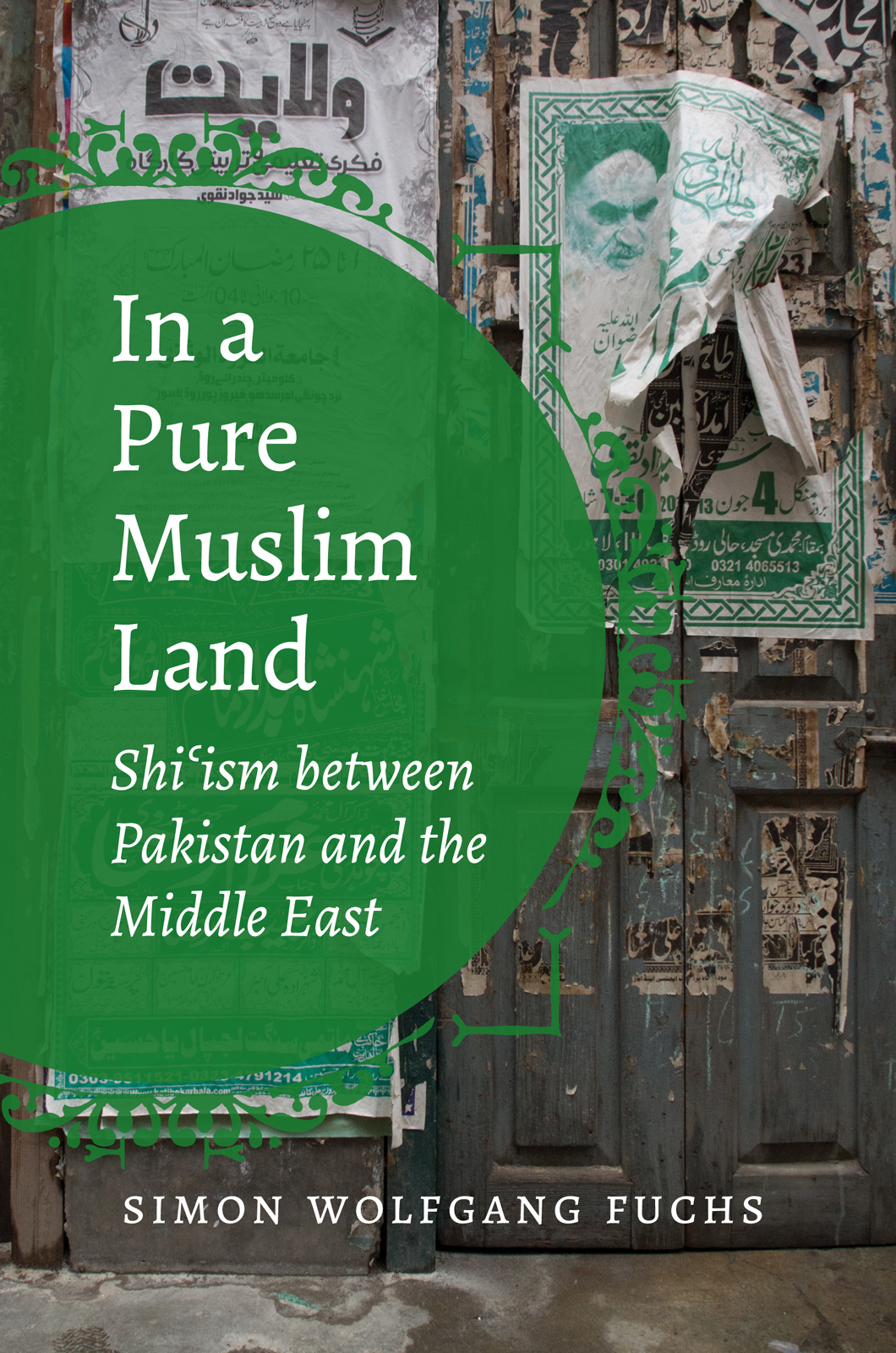ACKNOWLEDGMENTS
Thankfully, transnational scholarship is no lonely, solely text-focused affair. While dusty rooms, ink-stained fingers, and crumbling pages are the bread and butter of such an endeavor, I was fortunate to receive the help of countless institutions and individuals. In Pakistan, I am especially grateful to the late Sayyid Arif Husayn Naqvi, who welcomed me into his stunning private library, which stands as a testimony to his dedication in cataloging the intellectual heritage of the subcontinents Shii community. During the early days of research Zill-i-Hasnayn gave his full endorsement to all my shy requests for scanning Shii journals in the Punjab Public Library. Later on, Azra Usman, the librarys new director, was equally supportive of my project. Sayyid Riyaz Husayn Najafi, principal of the Jamiat al-Muntazar in Lahore, did not hesitate to grant me the permission to freely explore the seminarys book stacks. Muhammad Husayn Akbar, principal of the Idarah-i Minhaj al-Husayn in Lahore, provided me with liberal access to the many treasures housed in the school. Irshad Nasir, former editor of the journal al-Arif, personally retrieved for me all of its issues, along with those of its predecessor, Rah-i Amal. Saqib Akbar was always generous with telephone numbers and arranging contacts in Karachi, Lahore, and Qum. Muhammad Husayn Najafi Dhakko was not only willing to squeeze an interview into his tight scholarly schedule but also allowed me to utilize the library of the Sultan al-Madaris madrasa in Sargodha. The late Sayyid Muhammad Saqalayn Kazimi and the wide collection of Shii reformist works available in his Islamic Book Centre in Islamabad were essential for the project.
I am greatly indebted to the conversations I had with Hameed Haroon, Sayyid Ali Hasan Naqvi, Dr. Muhammad Hasan Rizvi, Professor Zahid Ali Zahidi, Sayyid Zamir Akhtar Naqvi, and Dr. Aqil Musa in Karachi. Muhammad Hasan Jafari, Shaykh Ahmad Nuri, and Taqi Akhundzadah were generous with their time in Skardu, as were Murtaza Pooya in Islamabad and Sayyid Nisar Ali al-Husayni al-Tirmizi and Dr. Suheyl Umar in Lahore. Sayyid Abbas Rizvi of the Iranian Cultural Center in Lahore granted me the permission to browse the shelves there, and Hamid Ali, senior librarian of the Oriental Section in the Punjab University Library, was exceptionally helpful in making Shii journals and printed works available to me.
In India, I enjoyed working with the staff of the Nehru Memorial Library, the Aligarh University Library, and the Iranian Cultural Centre New Delhi. I am grateful to Razak Khan and Professor Aziz al-Din Husayn, who made my trip to Rampur and its splendid Raza Library incredibly rewarding. Ali and Amir Khan of Mahmudabad provided a thrilling afternoon at the library of the Mahmudabad estate.
In the United Kingdom, I have incurred debts to Mirza Hasan Pooya, Hasan Riza Ghadiri, Robert Gleave, Jan-Peter Hartung, and Morgan Clarke. Justin Jones and Ali Usman Qasmi gave my research a boost early on by inviting me to present at the conference Shia Islam in Modern South Asia: An Interdisciplinary Perspective, which was held at Royal Holloway in September 2011. I would like to express a special word of gratitude to Faisal Devji for providing constant encouragement along the way.
My research trip to Iran was kindly and professionally facilitated by Hidayat Yusifi of Mofid University. In Qum, I benefited tremendously from the activities of the Markaz-i Ihya-i Asar-i Barr-i Saghir and especially Sayyid Saghir Abbas Naqvi, who provided me with digital copies of many late colonial Shii works produced in India. The more contemporary holdings of Qums Urdu library Kitabkhanah-i Allamah Iqbal Lahori, which were made accessible to me by its director, Muhammad Hasan Sharifi, served as a very useful complement. The Library of Grand Ayatollah Husayn Burujirdi was a treasure trove for Pakistani Shii journals.
Shaykh Ali Najafi was instrumental in making my journey to Iraq possible. I am grateful for our conversations in Najaf and for arranging a meeting with his father, Grand Ayatollah Bashir Husayn Najafi, who took the time to answer all my questions about transnational Shiism. It was a distinct pleasure to work in Najafs libraries, most of all in the Maktabat al-Imam al-Hakim, especially thanks to the hospitality of Sayyid Jawad al-Hakim.



